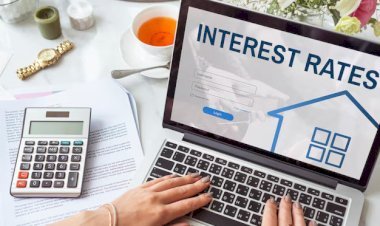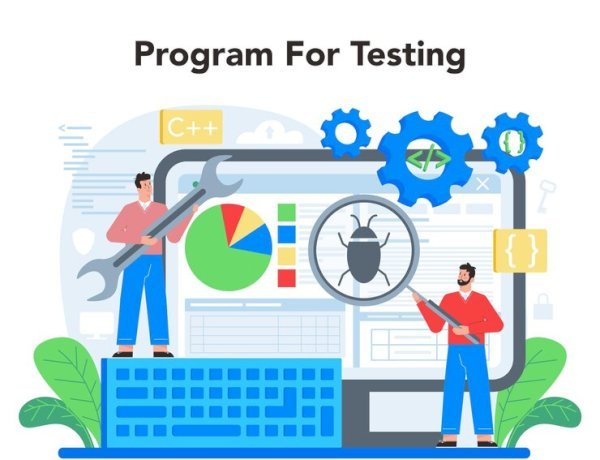Real Estate Investing for Beginners in 2025: Simple Steps to Start Smart
Thinking about property investing? This beginner-friendly 2025 guide covers how to start real estate investing in the UK, including tips, tools, and mistakes to avoid.

Real estate continues to be one of the most reliable ways to build long-term wealth. In 2025, with inflation impacting savings and the stock market showing signs of volatility, more people are turning to property as a safer investment option. But if you're new to real estate, knowing where to begin can feel overwhelming.
This beginner’s guide breaks everything down—what real estate investing means, how to get started, which options work best for beginners, and how to avoid common mistakes.
Why Real Estate Is a Smart Investment in 2025

Real estate offers multiple benefits:
-
Steady rental income from tenants
-
Appreciation in property value over time
-
Tax advantages, including expense deductions
-
Leverage, allowing you to buy properties with borrowed money
-
Physical asset ownership, unlike digital-only investments
With rental demand high in cities like Manchester, Birmingham, and Leeds, now is a great time to consider entering the property market.
Is Real Estate Right for You?

Before jumping in, ask yourself:
-
Do you have money saved for a deposit and legal fees?
-
Are you looking for long-term returns or quick gains?
-
Will you manage the property or hire an agent?
-
Can you handle periods without rental income?
If you’re exploring ways to build income outside of traditional jobs, check out our step-by-step guide to starting a business in 2025.
Beginner-Friendly Real Estate Options in the UK

Not all investment methods require owning a house. Here are beginner-friendly ways to start:
1. Buy-to-Let Property
You buy a house or flat and rent it out to tenants. This offers monthly income and long-term growth.
2. REITs (Real Estate Investment Trusts)
Invest in property portfolios without owning the buildings. Great for those who want exposure to real estate without landlord duties.
3. House Flipping
Buy, renovate, and sell homes for a profit. Requires more money and experience, but potential rewards are higher.
4. Short-Term Rentals (e.g., Airbnb)
List your property for holiday stays. Popular in tourist cities like Edinburgh or Bath. More income, but also more work.
5. Real Estate Crowdfunding
Join others to fund large developments. Start with as little as £100 via platforms like Property Partner or Brickowner.
How to Start Real Estate Investing in 2025

Step 1: Set Your Goals
Do you want monthly income, appreciation, or both? Your goal will guide your strategy.
Step 2: Check Your Finances
You’ll need:
-
A deposit (15–25%)
-
Good credit (ideally 700+)
-
Extra funds for fees, repairs, and emergencies
Step 3: Research the Market
Use sites like Rightmove, Zoopla, and PropertyData to compare prices and rental yields by area.
Step 4: Build Your Knowledge
Before spending your money, it’s smart to learn how to invest through educational platforms. Knowing the basics—like ROI, risk management, and leverage—will help you make safer decisions.
Step 5: Start Small
Try one property or invest in a REIT first. Focus on learning, then grow your portfolio.
What to Know Before You Buy

Even experienced homeowners need to learn the business side of property investing. Here are key areas:
-
Rental Yield: Good areas typically offer 5–7% gross yield.
-
Cash Flow: Subtract mortgage, tax, insurance, and repairs from rent income.
-
Landlord Laws: You must protect tenant deposits, provide safety checks, and follow eviction rules.
-
Mortgages: Buy-to-let loans usually need a higher deposit and have stricter rules.
-
Taxation: You may owe income tax on rent and capital gains tax when selling.
Mistakes Beginners Should Avoi

Taking on Too Much Debt
Overleveraging can leave you vulnerable if interest rates rise or your property sits empty.
Ignoring Location
Low-cost areas may seem appealing, but they often have poor rental demand or higher tenant risk.
Forgetting Extra Costs
Budget for repairs, insurance, vacant months, and legal services.
Rushing the Process
Take time to inspect, compare, and learn. Buying without research can be costly.
Useful Tools and Platforms

Here are tools that can help:
-
Zoopla Yield Calculator – Estimate rental income vs costs
-
Landlord Vision – Manage tenants, rent, and expenses
-
Rightmove Trends – See local price trends and rental demand
-
Crowdfunding sites – Platforms like Brickowner offer easy entry to large projects
Want to upgrade your property to attract better tenants? Smart tech matters. Here’s how smart homes are increasing property values in 2025.
Final Thoughts
Real estate can be one of the safest and most rewarding ways to grow your money. But it’s not without risks—especially if you jump in without learning the basics.
By starting small, researching your market, and understanding your financial limits, you can build a property portfolio that grows with you. Whether you begin with one flat or a REIT, your journey begins with the first informed step.
Frequently Asked Questions (FAQs)
1. How much money do I need to start?
You need at least £30,000–£50,000 for a small rental home, or just £100 for REITs.
2. What is the easiest way to start?
You can start with REITs or real estate apps that need very little money.
3. Is real estate safe in 2025?
Yes, it’s safer than many other options if you plan well and start small.
4. Do I need a company to invest?
No, you can buy property in your own name to begin with.
5. How do I know if a rental will make money?
Check if the rent you get is more than the money you spend every month.




























